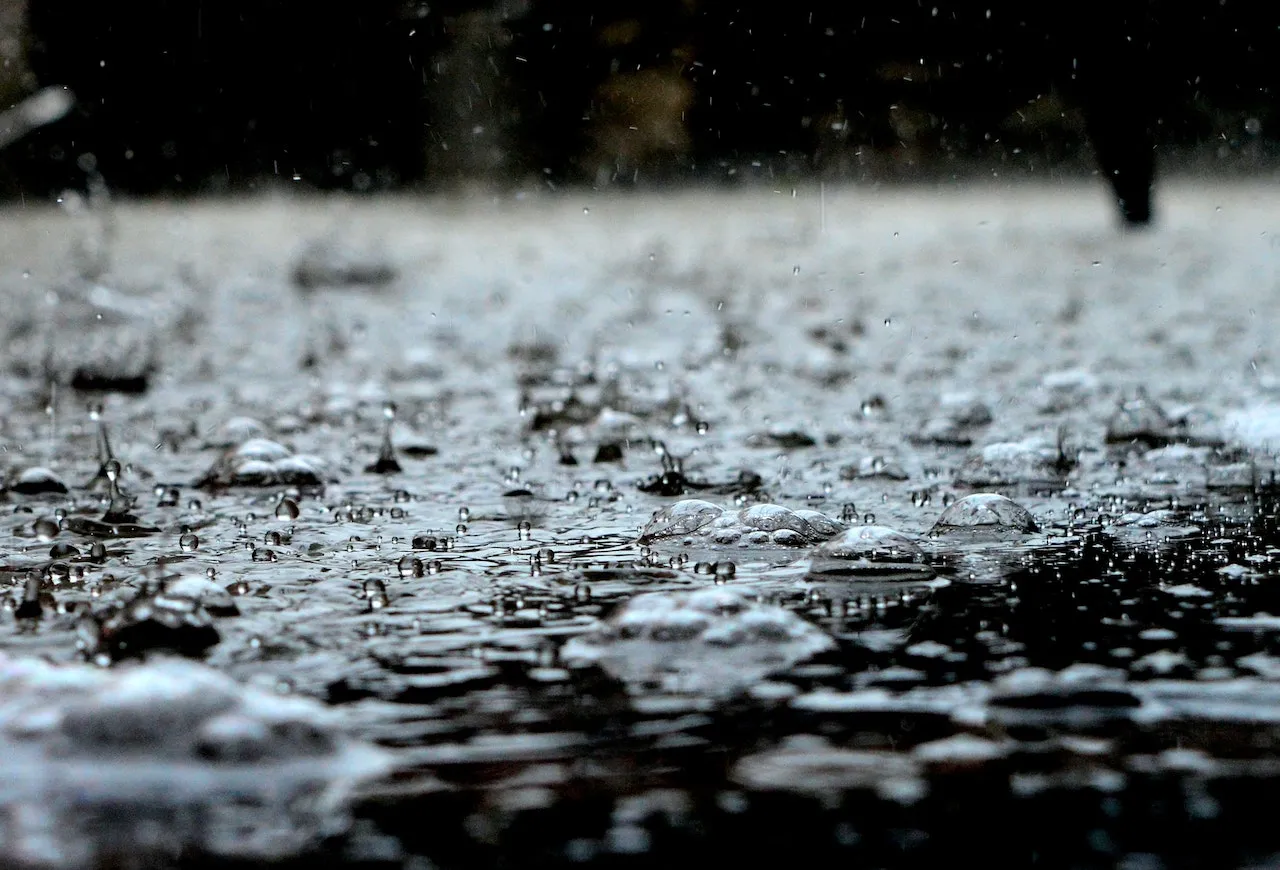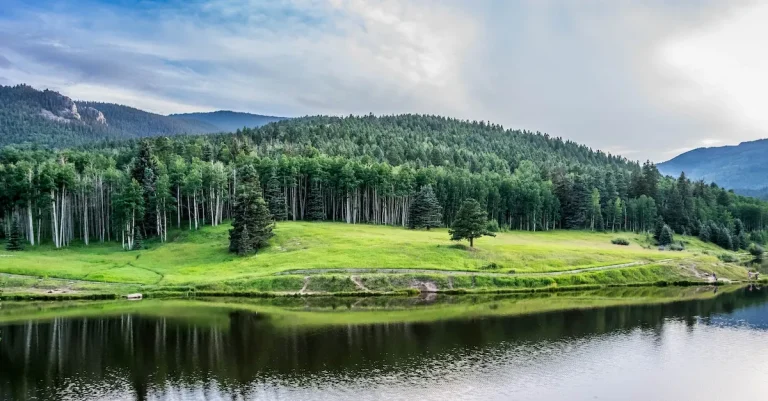Why Is It Illegal To Collect Rainwater In Colorado?
If you live in Colorado and want to collect rainwater, you may be surprised to find out it’s actually illegal without the proper permits. This strange law has many Colorado residents wondering why they can’t harvest the free water that falls on their property. We’ll explore the complex history and reasons behind Colorado’s rainwater collection laws.
If you’re short on time, here’s the quick answer: Rainwater collection is restricted in Colorado because water rights holders have claim to the rain that falls. The state issued the laws to protect senior water rights owners and maintain adequate water supplies.
The Basic Reasons Behind Colorado’s Rainwater Collection Laws
Colorado’s rainwater collection laws have raised eyebrows and sparked curiosity among residents and visitors alike. While it may seem counterintuitive to make it illegal to collect rainwater, there are several important reasons behind this legislation.
Water rights laws in Colorado
One of the primary reasons for the prohibition of rainwater collection in Colorado is the state’s unique water rights laws. Colorado follows the doctrine of prior appropriation, which means that water rights are granted based on a “first in time, first in right” principle.
In simple terms, this means that those who have established water rights have priority over others when it comes to using the state’s water resources. By restricting rainwater collection, the state aims to protect these established water rights and prevent any potential conflicts or infringements.
Protecting senior water rights holders
Colorado’s rainwater collection laws also aim to protect senior water rights holders. These individuals or entities have rights to divert water from rivers and streams for various uses, such as agriculture or municipal supply.
Allowing widespread rainwater collection could potentially interfere with these senior water rights holders’ ability to access the water they are entitled to. By regulating rainwater collection, the state seeks to maintain a balance and ensure that senior water rights holders are not adversely affected.
Maintaining adequate water supplies
Another crucial reason for the ban on rainwater collection in Colorado is to maintain adequate water supplies. Colorado is a semi-arid state with limited water resources, and water scarcity is a significant concern.
The restriction on rainwater collection helps to ensure that the natural flow of water is not disrupted, allowing it to replenish rivers, streams, and reservoirs. This is crucial for meeting the needs of communities, agriculture, and wildlife, especially during times of drought or water scarcity.
It’s important to note that there are exceptions to Colorado’s rainwater collection laws. In 2016, the state passed a law allowing limited residential rainwater collection, provided certain conditions are met.
These conditions include the use of a properly sized and maintained rain barrel and the collection of rainwater from an individual’s rooftop for outdoor use only. This change reflects a growing recognition of the importance of sustainable water practices while still balancing the needs of existing water rights holders.
For more information on Colorado’s water rights laws and rainwater collection regulations, you can visit the official website of the Colorado Department of Public Health and Environment.
The History and Origins of Colorado’s Rainwater Collection Laws
Colorado’s rainwater collection laws have a long and fascinating history that dates back to the 19th century. Understanding the origins of these laws provides valuable insight into why it is currently illegal to collect rainwater in the state.
Mining impacts in the 19th century
During the 1800s, Colorado experienced a significant mining boom, attracting thousands of prospectors seeking their fortunes. The intensive mining activities had a profound impact on the state’s water resources, leading to concerns about water scarcity.
As a result, the state introduced strict water laws to regulate the use and distribution of water.
One of the key concerns was the depletion of water sources due to mining operations. As rivers and streams were diverted for mining purposes, there was a growing need to protect the remaining water sources for agricultural and domestic use.
Prior appropriation doctrine
Colorado operates under the prior appropriation doctrine, which means that water rights are granted based on a “first in time, first in right” principle. This doctrine assigns water rights to those who first put the water to “beneficial use,” such as irrigation or domestic consumption.
Under this doctrine, water rights holders have a legal claim to a specific amount of water, and any interference with these rights, including collecting rainwater, is seen as a potential infringement on someone else’s water rights.
The doctrine prioritizes existing water rights holders and ensures the equitable distribution of water resources.
Advent of residential rainwater harvesting
In recent years, there has been a growing interest in residential rainwater harvesting as a sustainable water management practice. However, Colorado’s water laws have not adapted to accommodate this practice fully.
The prohibition on rainwater collection is intended to protect existing water rights and maintain the delicate balance of water allocation in the state.
It’s important to note that Colorado is not the only state with restrictions on rainwater collection. Several other western states, including Utah and Nevada, also have similar laws in place.
Advocates for rainwater collection argue that allowing individuals to collect rainwater would promote water conservation and reduce the strain on existing water sources. However, opponents express concerns about potential conflicts over water rights and the potential impact on downstream users.
Efforts are underway to revise Colorado’s rainwater collection laws to strike a balance between water conservation and protecting existing water rights. As the state continues to grapple with water scarcity issues, a comprehensive understanding of the history and origins of these laws is crucial for informed decision-making and future policy changes.
The Permitting System for Rainwater Collection
In Colorado, the collection of rainwater is regulated by a permitting system. This system ensures that rainwater collection is done in a sustainable and responsible manner, taking into account the needs of both the individual and the environment.
Permit exempt rainwater collection systems
There are some exceptions to the permitting requirement for rainwater collection in Colorado. According to the state law, individuals are allowed to collect rainwater without a permit if they are using simple, small-scale rain barrels with a capacity of 110 gallons or less.
These rain barrels are typically used to collect water from rooftops for non-potable purposes such as watering gardens or lawns.
Statistical Data: According to a report by the Colorado Water Conservation Board, approximately 75% of Colorado households engage in some form of rainwater harvesting, with rain barrels being the most common method.
Graywater usage laws
It is important to note that rainwater collection is different from graywater usage. Graywater refers to gently used water from sources such as sinks, showers, and washing machines. In Colorado, the use of graywater for outdoor irrigation is allowed under certain conditions, but it is subject to separate regulations.
These regulations aim to ensure that graywater usage does not pose a risk to public health or the environment.
Related Website: For more information on graywater usage laws in Colorado, you can visit the Colorado Department of Public Health and Environment’s website: https://www.colorado.gov/pacific/cdphe/graywater
Obtaining a legal rainwater collection permit
If you are interested in collecting rainwater on a larger scale or for potable purposes, you will need to obtain a legal permit from the Colorado Division of Water Resources. The permitting process ensures that the water collected does not interfere with existing water rights and that it is used responsibly.
When applying for a rainwater collection permit, you will need to provide details such as the size and location of your collection system, the estimated amount of water you plan to collect, and how you intend to use the water.
The Division of Water Resources will review your application and may require additional information or impose certain conditions before granting the permit.
Tip: It is recommended to consult with a professional or do thorough research before beginning the process of obtaining a rainwater collection permit in Colorado to ensure compliance with all regulations.
Arguments For and Against Rainwater Collection Laws
Supporters say the laws protect water rights
One of the main arguments in favor of rainwater collection laws is that they protect water rights. Supporters argue that by regulating the collection of rainwater, these laws ensure that water resources are properly managed and allocated.
They believe that if individuals were allowed to freely collect rainwater, it could potentially affect the water supply of others, especially in areas with limited water resources. By enforcing laws that control rainwater collection, the government can ensure that everyone has access to a fair share of water.
According to the Colorado Division of Water Resources, maintaining water rights is crucial for the state’s agricultural industry. Colorado relies heavily on water for irrigation purposes, and diverting rainwater could potentially disrupt the balance of water distribution.
Therefore, supporters of rainwater collection laws argue that these regulations are necessary to protect the livelihoods of farmers and the overall sustainability of the state’s water resources.
Critics argue rainwater laws are outdated
On the other hand, critics of rainwater collection laws argue that these regulations are outdated and do not reflect modern advancements in water conservation and management. They believe that technology and practices have evolved since the laws were first enacted, and it is now possible to collect rainwater in a sustainable and responsible manner.
Some critics also argue that rainwater collection laws limit individual freedom and property rights. They believe that individuals should have the right to utilize rainwater that falls on their own properties, as long as they do so responsibly and without negatively impacting the water supply of others.
They argue that by allowing rainwater collection, individuals can reduce their reliance on municipal water supplies, which can be beneficial in times of drought or water scarcity.
Recent changes to expand rainwater collection
In recent years, there have been efforts to expand rainwater collection in Colorado. In 2016, the state passed a law that allows homeowners to collect rainwater from their rooftops for personal use, such as watering gardens or landscaping.
This change was seen as a step towards a more progressive approach to water management.
The Colorado State University Extension provides information on rainwater harvesting and its benefits for water conservation. They emphasize that when done properly, rainwater collection can help reduce the demand for municipal water and relieve stress on water supplies.
The Extension also provides resources and guidelines for individuals interested in implementing rainwater collection systems on their properties.
Storing and Using Harvested Rainwater Legally
Collecting rainwater can be a great way to conserve water and reduce dependence on municipal water sources. However, it is important to be aware of the legalities surrounding rainwater harvesting, especially in states like Colorado where it is currently illegal to collect rainwater without a permit.
Understanding the regulations and following the proper guidelines can help ensure that you are storing and using harvested rainwater legally.
Tips for legal rainwater harvesting
To avoid any legal issues, it is important to familiarize yourself with the regulations regarding rainwater harvesting in your area. In Colorado, for example, individuals are required to obtain a permit from the state engineer’s office to collect rainwater.
This permit allows for the collection of rainwater up to a certain amount and for specific uses, such as outdoor irrigation.
Additionally, it is important to follow proper installation and maintenance practices for rainwater harvesting systems. This includes using appropriate filtration systems to remove debris and contaminants from the collected water, as well as regularly inspecting and cleaning the storage containers to prevent the growth of bacteria or other harmful substances.
Using rain barrels effectively
Rain barrels are a popular method of collecting rainwater, and when used correctly, they can be an effective way to store and utilize harvested water. When setting up rain barrels, it is important to position them in a location where they can capture the maximum amount of rainwater, such as under a downspout or gutter.
It is also important to properly maintain rain barrels to ensure the water remains clean and usable. Regularly emptying and cleaning the barrels, especially after heavy rainfall or periods of inactivity, can help prevent the growth of algae or other contaminants.
Safety considerations for rainwater use
While using harvested rainwater can be a great way to conserve water, it is important to be aware of certain safety considerations. Rainwater should not be used for drinking or cooking unless it has been properly treated and tested.
It is also important to avoid using rainwater for activities that can lead to ingestion or inhalation of the water, such as in swimming pools or hot tubs.
For more detailed information on legal rainwater harvesting and safety guidelines, you can visit the official website of the Colorado Division of Water Resources at https://dwr.colorado.gov/.
Conclusion
Colorado’s laws restricting rainwater collection have complex origins but the purpose is to protect senior water rights owners. While the laws seem outdated to some residents, the system aims to ensure adequate water supplies. With proper permitting, rainwater harvesting can often be done legally.
Recent expansions show Colorado is adapting its rainwater laws, but the prior appropriation doctrine remains intact. Understanding the issues around rainwater collection can help Coloradans harvest rain legally and effectively.








